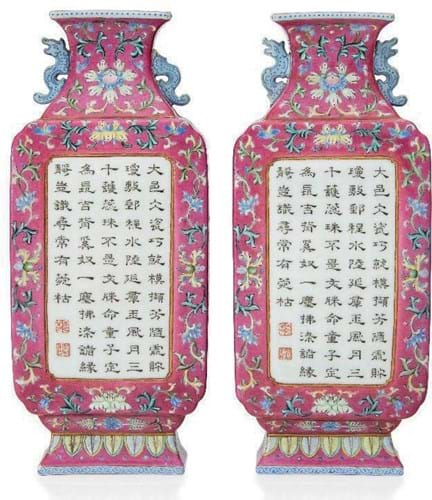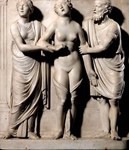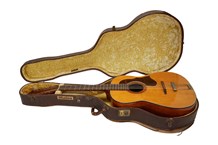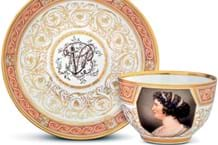
Estimated at £20,000- 30,000 in the south London sale of Chinese, Japanese & South East Asian Art on July 28, they sold for £260,000 (£324,500 including 25% buyer’s premium).
According to the archives of the imperial workshops, it was in 1742 that the art-obsessed emperor Qianlong instructed Tang Ying (1682-1756), head of the Jingdezhen imperial kilns, to produce porcelains inscribed with his poems.
The same year the first wall pockets were made following a request for a vase suitable for displaying fragrant flowers in a sedan chair. They became one of the emperor’s favourite forms and one that developed across his long reign.
Of the 320 Qianlong wall vases recorded in the collection of the Palace Museum in Beijing, 138 are inscribed with poems by the emperor.
Imperial poem
This 8in (20cm) pair with a ruby ground feature The Hanging Bottle, a verse dated to 1758 in which the emperor expresses his delight in seeing a wall vase filled with flowers hanging inside his sedan chair on the way to a hunting trip. The two iron-red seal marks read Qianlong chen han (‘the Qianlong Emperor’s own mark’).
They came from a private west London collection and had been inherited around 1950. Condition issues included broken and rebuilt dragon handles (with small losses) and some chipping to two corners.
Nine prospective buyers had paid a deposit to bid on this ‘premium lot’ – seven on the phone and two Chinese agents in the room.
One of the latter opened the contest with the shout of £100,000 but it was the other, taking instructions in West Norwood via a mobile phone, who placed the winning bid.
Roseberys’ specialist Bill Forrest told ATG it had been “a seriously strong sale – our best so far”, with a hammer total of £914,000.
Last November, Sworders sold a similar wall vase with a yellow sgraffito ground and a poem praising incense that was dated to c.1745. Bought by the vendor in a Hertfordshire charity shop earlier in 2019 for £1, it sold for £380,000 (plus 25% buyer’s premium).














